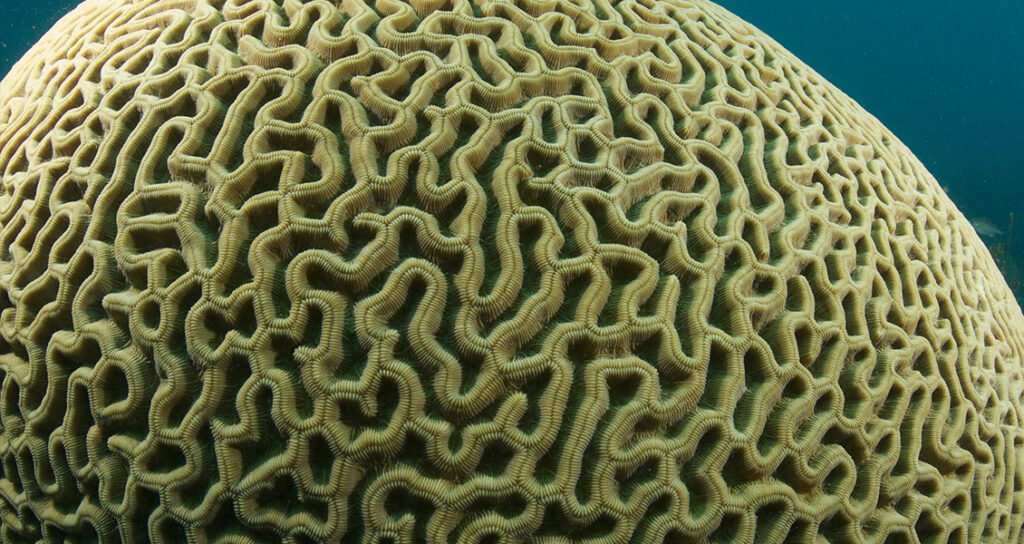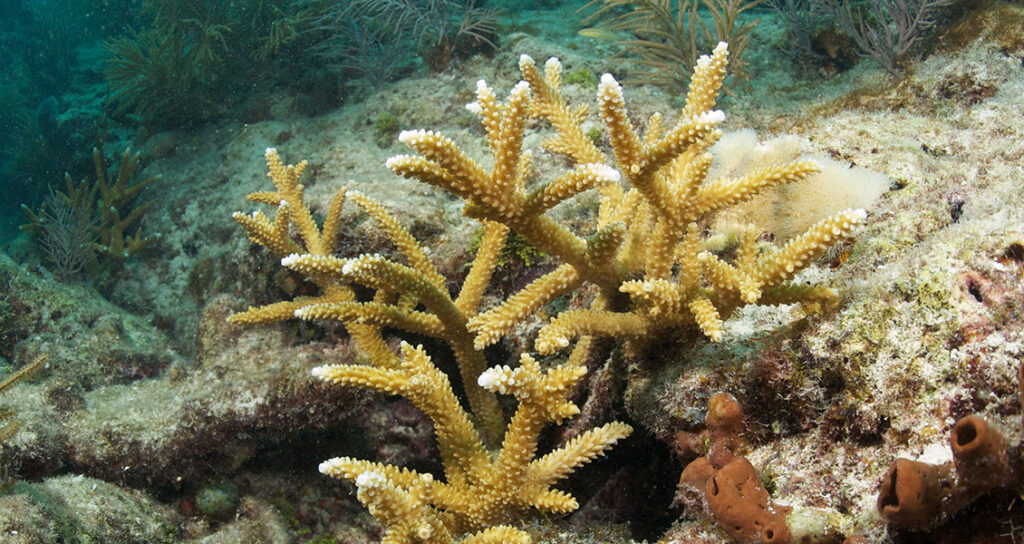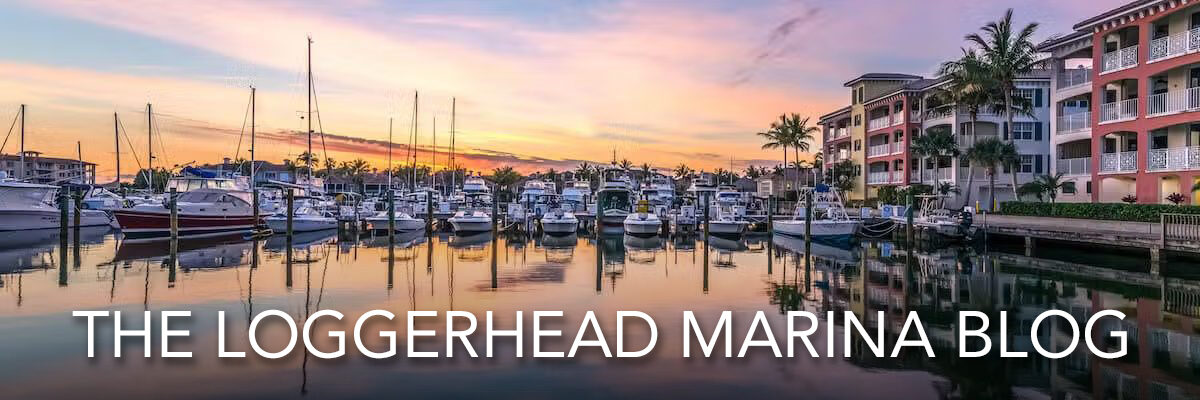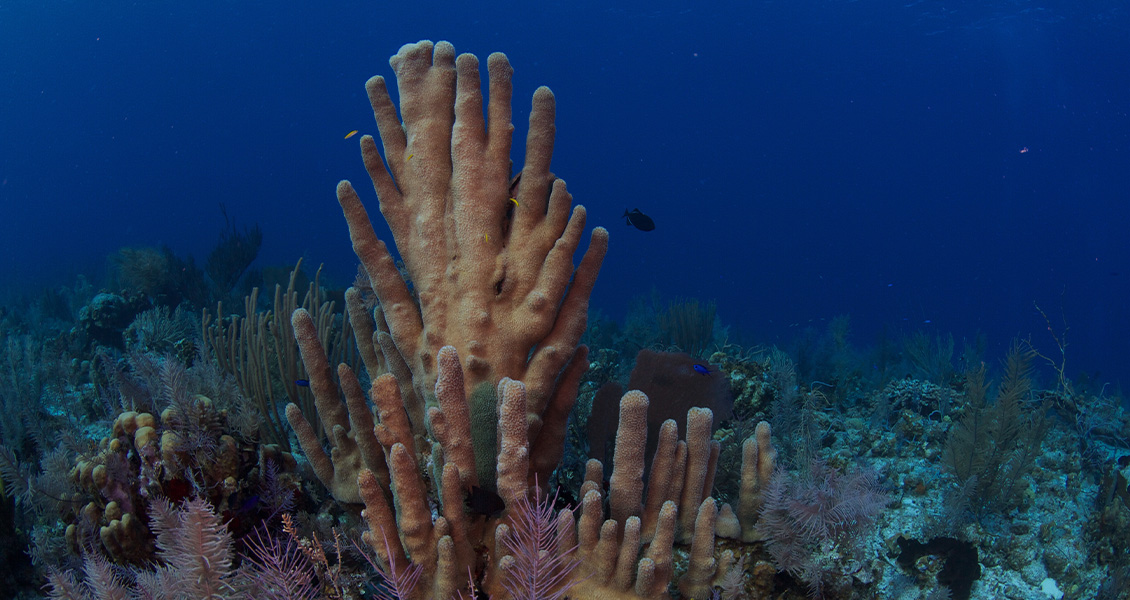The words “coral reef” have several connotations. To many it invokes memories of snorkeling or diving in the clear blue waters of the Florida Keys, Caribbean or other tropical parts of the world. Others think of days out on the boat fishing and enjoying time with friends and family. Some may think of a Jimmy Buffet ballad backed up by his band the Coral Reefers.
Few, however, think of the valuable roles coral reefs play in our natural world and in our coastal economies. Worldwide, coral reefs are hotbeds for biodiversity that support 25% of all marine species and over $36 billion in tourism. If you enjoy recreational fishing it is important to know that coral reefs provide shelter and food as well as reproductive and nursery areas for many marine species including those that are commercially and recreationally valuable as food fish. According to the PEW Charitable Trusts nearly 6 million fishers in the world rely on coral reefs for their products which have an estimated annual value of $375 billion globally. The annual value of coral reef-based fisheries in the US is well over $200 million.

Healthy reefs are not just important for protecting our fisheries and tourism, they are critical for protecting our coastal communities. Coral reefs are the first line of defense against powerful storms by reducing wave height an average of 84%. In many tropical coastal communities, mangroves and coral reefs work in tandem to protect shorelines from severe storms and flooding. A recent study found that Florida’s Coral Reef annually provides over $675 million dollars in flood protection benefits to people, property and jobs – increasing to over $1.6 billion during severe storm events.
Unfortunately, coral reefs are facing many local, regional, and global stressors including declining water quality and unusually high ocean temperatures that led to 2023-24 being declared as the 4th global coral bleaching event. In addition, an outbreak of the virulent “stony coral tissue loss disease” continues to affect corals throughout Florida, the Bahamas, and the Caribbean.

Since coral reefs are so valuable, it’s critical to keep them healthy and resilient. Luckily there is still time to save these amazing ecosystems! Loggerhead Marinelife Center and its partner organizations are focused on all areas of reef conservation ranging from education to habitat restoration and disease control. We need your help – the boating community is key to helping us build innovative private and corporate partnerships that will support protection and restoration of these ecologically, culturally, and economically important ecosystems.
There are several things you can do to help in this fight to protect this resource for generations to come. Some of the most impactful things you can do are:
- Use reef safe sunscreen. Visit https://oceanservice.noaa.gov/news/sunscreen-corals.html for more information.
- Choose sustainable seafood by using a program like Seafood Watch.
- Practice safe boating by anchoring in sandy areas away from reefs and sea grasses – far enough to ensure the anchor chain does not drag over these sensitive habitats.
- Be chemical aware. Many cleaning chemicals for boats can harm the reefs as can fertilizers used in your yard at home.
- Recycle monofilament lines to prevent derelict marine debris.
- Refuse or reduce single-use plastics. Plastics eventually break down into nano plastics and trickle into the food and water we consume.
I learned to snorkel in the Florida Keys at the age of 5. I have had a lifetime of adventure and excitement on or under the water on coral reefs. I have been very fortunate to have dove with large sharks, snorkeled with sea turtles and watched goliath groupers. At Loggerhead Marinelife Center we want to help build awareness for these special places to ultimately protect them. We know we have kindred spirits in the boating community that love the coral reefs just like we do, and we thank you for being partners in their protection.
Andy Dehart
President & CEO
Loggerhead Marinelife Center


